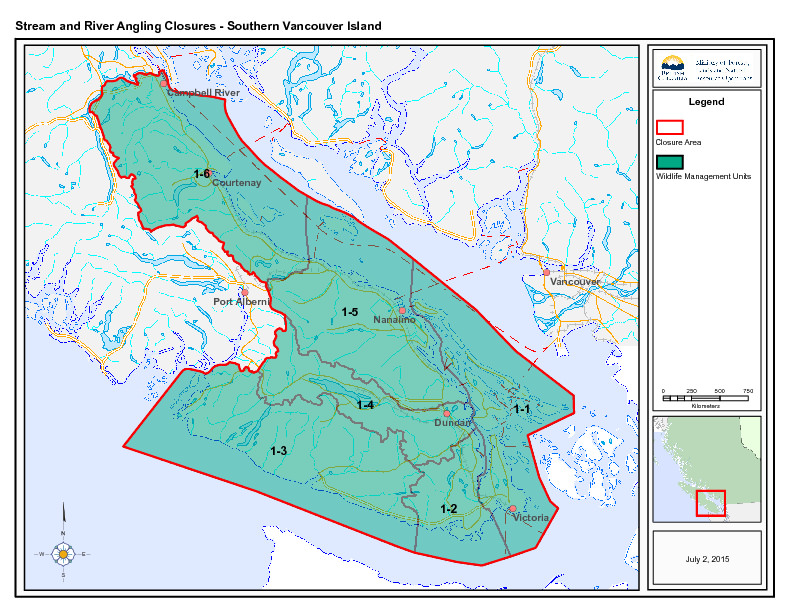WATCH: Metro Vancouver has strengthened its sprinkling restrictions as the hot, dry weather continues. Ted Chernecki reports.

In order to conserve water during the unseasonably dry and hot weather, Metro Vancouver introduced new water restrictions that include regulations around lawn watering.
Declaring that the Metro Vancouver region is in the second stage of a four-stage plan, the Commissioner of the GV Water District Carol Mason said in a statement, “over the last several years, our lawn sprinkling regulations have had a significant positive impact on reducing water demands in the peak summer season, and we are asking residents and businesses to further conserve water at this time.”
Watering lawns is permitted in the morning but not during the evening hours when demand is highest for household use. The increased restrictions apply to lawn sprinkling only and not to watering flowers, vegetables, shrubs and trees.
“We are seeing record temperatures and there was virtually no rain in June when normally we have rain on about 12 days,” said Board Chair Moore.
“We all have to do our part and conserve water whenever possible, and that now includes only watering lawns once a week.”
Current lawn sprinkling regulations are: Residential — even-numbered addresses may sprinkle lawns 4 a.m. – 9 a.m. Monday; odd-numbered addresses may sprinkle lawns 4 a.m. – 9 a.m. Thursday and non-residential — even-numbered addresses may sprinkle lawns 1 a.m. – 6 a.m. Wednesday; odd-numbered addresses may sprinkle lawns 1 a.m. – 6 a.m. Tuesday; and municipal parks must also follow the once weekly lawn sprinkling times.
WATCH: Aerials of the Vancouver reservoir show just how low the water levels are now. Water restrictions are in place across the region and there is now a complete fire ban across most of B.C.
Also included in the stage two plan is all public and commercial fountains and water features are not allowed to operate in Metro Vancouver.
Vancouver Island and the Gulf Islands are also experiencing extremely dry conditions. In response to the current conditions, the province has declared Level 4 drought conditions for Vancouver Island and the Gulf Islands, and also taken the extra step of suspending fishing in the area.
The suspension of all angling streams and rivers starts July 4 and has been put in place to protect fish stocks, which are considered vulnerable due to low flows and high water temperatures. The areas impacted by the fishing ban include: Bamfield south to Victoria on the west coast, and Campbell River south to Victoria on the east coast.
- ‘Beast Mode’: Former Canuck Ryan Kesler back in Vancouver for Game 2 vs. Nashville
- Woman shares carjack nightmare: ‘I can’t believe this is happening in Victoria’
- No Demko but plenty of spirit as fans prepare for Game 2 of Canucks playoff run
- Caught on video: B.C. firefighter survives hit-and-run outside his own home
“As we experience warmer and drier weather, it is important that we are able to react quickly to protect vulnerable fish stocks,” said Steve Thomson, Minister of Forests, Lands and Natural Resource Operations in a statement. “That is what we’ve done today, and what we will continue to do in future, as conditions warrant.”
READ MORE: Cowichan River drought could hurt local economy
Key rivers impacted by the order include: Caycuse, Chemainus, Cowichan, Englishman, Gordon, Little Qualicum, Nanaimo, Nitinat, Oyster, Puntledge, San Juan, Sooke, Trent and Tsable. The Qualicum and Quinsam rivers are the only ones not included in the ban.
Low rainfall in the past few months coupled with Environment Canada predicting sustained heat is causing concerns about the drought-like conditions and the impact on the province’s waterways. Water levels in many river systems in the province are already very low, and more typical of levels seen in August, and it’s raising concerns about the health of the salmon runs.
According to the River Forecast Centre, snow pack levels on Vancouver Island were at historic lows this past winter and with the warmer weather and lack of rain it’s resulting in seasonal low to extreme low conditions in streams across the region.
At Level 4 there is the potential for a further decline in stream, lake and aquifer levels; which could result in water shortages and impact industries, wildlife, fish stocks and residents.
The angling closure order is only for southern Vancouver Island and the Gulf Islands at this time but B.C. government fisheries biologists are monitoring about 75 other key angling streams across the province. If conditions call for it, additional closures are possible.
The province is urging all water users to increase their conservation of water.




Comments